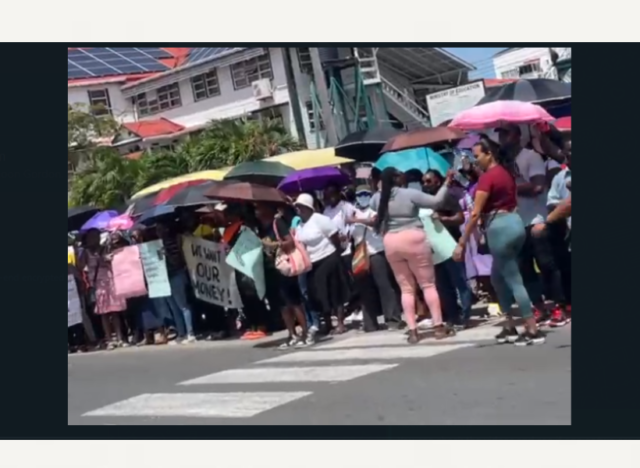By: Sueann Wickham
In the annals of Guyana’s history, strikes have been used as a means of pursuing justice and dignity for workers who struggle for equitable rights and better working conditions. From the earliest chapters of indentured labourship and colonial rule to present day, workers of various sectors in Guyana have steadfastly raised their voices in defiance of what they perceive to be manifestations of oppression.
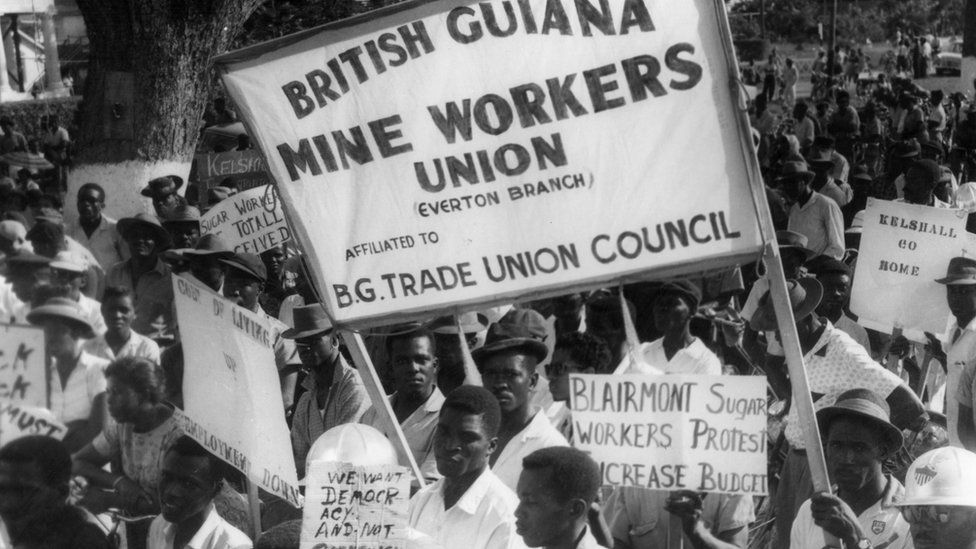
The story of teachers’ strikes especially, is not merely a chapter in Guyana’s history; it is a continuum, a thread that stretches across generations, dating back to the 1900s. As Guyana navigated its path toward self-governance, educators found themselves at the forefront of a movement demanding better working conditions, recognition and respect.
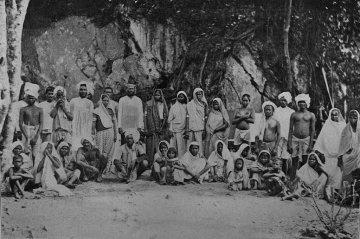
According historical text available, the early 1900s teachers in Guyana, primarily serving under British colonial administration, began voicing grievances over low wages, poor working conditions, and lack of professional recognition. The first recorded teachers’ strike in Guyana occurred around the early 1900s, marking a pivotal moment in the fight for labour rights and educational reform.
Norman Cameron’s “150 Years of Education in Guyana” shed light on the period between the 1940s to 1950s which saw the dawn of the nationalist movement, with teachers increasingly aligning themselves with broader social and political causes, advocating for educational equity and social justice. By the 1960s, amidst the winds of change sweeping across the Caribbean, teachers’ unions gained momentum, galvanizing support for collective bargaining and improved standards in education.
[https://www.google.gy/books/edition/150_Years_of_Education_in_Guyana_1808_19/cvMMAQAAIAAJ?hl=en&gbpv=1&bsq=teachers+strike+in+british+guiana&dq=teachers+strike+in+british+guiana&printsec=frontcover](https://www.google.gy/books/edition/150_Years_of_Education_in_Guyana_1808_19/cvMMAQAAIAAJ?hl=en&gbpv=1&bsq=teachers+strike+in+british+guiana&dq=teachers+strike+in+british+guiana&printsec=frontcover “smartCard-inline”)
Then came the era of mobilization. As Guyana transitioned from colonial rule to independence in 1966, the role of teachers’ unions became more pronounced in shaping the country’s educational landscape. The Guyana Teachers’ Union (GTU) emerged as a formidable force, championing the rights of educators and advocating for systemic reforms. Throughout the 1970s and 1980s, the GTU led several strikes and protests, leveraging their collective strength to address a myriad of issues plaguing the education sector.

[https://www.persee.fr/doc/rbph_0035-0818_2006_num_84_4_5061](https://www.persee.fr/doc/rbph_0035-0818_2006_num_84_4_5061 “smartCard-inline”)
In the 1980s, the Government of Guyana, under the leadership of the late President, Forbes Burnham, introduced the Education Act, which sought to address some of the longstanding grievances of teachers, including salary adjustments and improved benefits. But despite legislative reforms, tensions between the GTU and the government persisted, leading to sporadic strikes and labour disputes.
The turn of the 21st century brought renewed momentum to the teachers’ movement in Guyana, as educators continued to press for meaningful reforms and fair treatment. With globalization reshaping economies and societies worldwide, the education sector faced new challenges and opportunities, prompting teachers to alter their strategies for advocacy and activism.
The 2000s began with the GTU expanding its focus to address emerging issues such as curriculum development, teacher training, and technology integration in schools. In 2002, the government of Guyana, in collaboration with international partners, launched initiatives to enhance the quality of education and support professional development for teachers. However, by the 2010s strikes erupted yet again, intersecting with broader debates around governance, accountability, and social justice, reflecting the evolving dynamics of civil society activism.
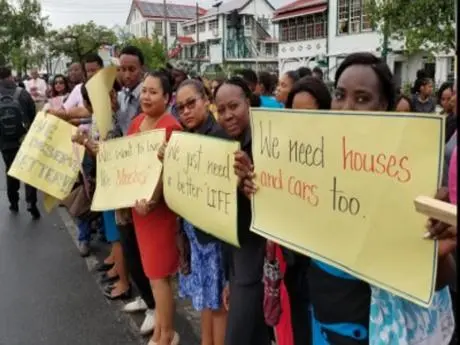
These tensions brewed until a landmark teachers’ strike occurred in 2018 which spanned several weeks, yet again capturing national attention and galvanizing public support for educational reform. At least 34 schools were completely shut down.
The Education Ministry under the A Partnership for National Unity/Alliance for Change (APNU/AFC) coalition had proposed a $700M figure to pay teachers following initial negotiations with the union. However, then President of the GTU, Mark Lyte noted that the sum when divided for each teacher, will only amount to a mere $5,000 increase per teacher. Nevertheless they eventually found common ground, with the government tabling a revised proposal of a 10 percent increase for 2016 and eight percent for 2018. The government also proposed a $350 million debunching payout to teachers spanning the period 2011 – 2018.
Although the pay hike was a fraction of the 40 percent across the board increase the union had initially demanded, teachers were willing to accept government’s new offer.
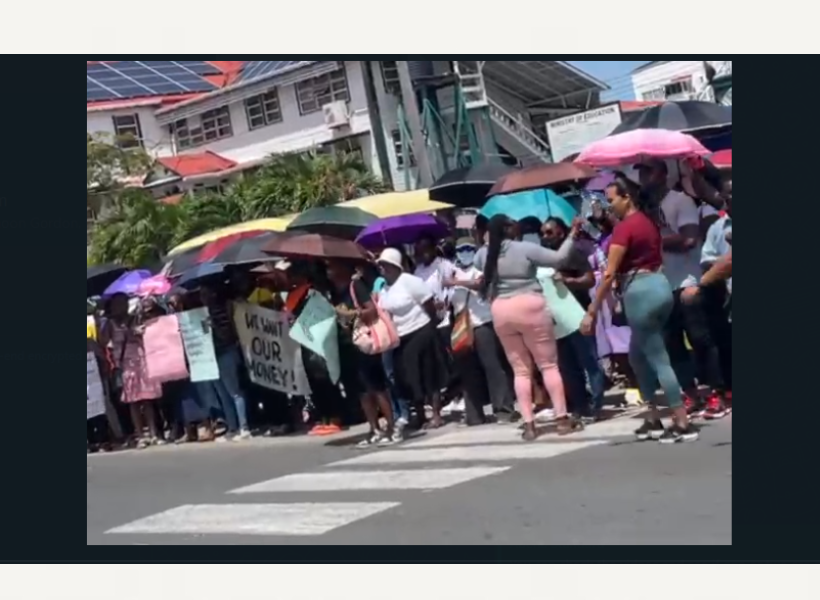
Coming to recent happenings, on Monday February 5, 2024, teachers commenced picketing outside the Education Ministry, demanding improved salaries and working conditions. The strike, orchestrated by the GTU, unfolded mere days following the passage of the nation’s largest budget to date, totaling a staggering $1.146 trillion.
Under the leadership of current union President, Coretta McDonald, the union’s General Secretary and an Opposition Member of Parliament, educators brandished placards and vocalized their grievances, pressing the Ministry of Education for greater support. Among the myriad concerns expressed were inadequate wages, insufficient seating arrangements in schools, subpar facilities, unmet needs for affordable housing, and stringent requirements for accessing duty-free privileges.
Several teachers recounted instances of dipping into their own finances to procure essential materials, as well as shouldering the burden of providing for underprivileged students lacking meals and basic learning resources.
McDonald, addressing media representatives during the protest, underscored that improved working conditions and a substantial salary hike are paramount among the teachers’ demands. She emphasized that the recent 6.5 percent wage increase fell short of expectations, highlighting its imposition rather than arising from genuine collective bargaining efforts.
As the current strike unfolds, it will be intriguing to observe whether the government and the union can reconcile their differences and it will yield results or if they will further contribute to Guyana’s longstanding history of strikes dating back to the 1920s. This ongoing dialogue holds the key to shaping the immediate future of education in our country and will undoubtedly leave a significant imprint on the legacy of labor relations and social justice in Guyana.







